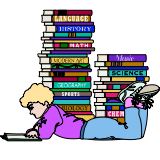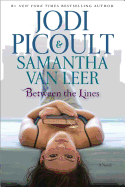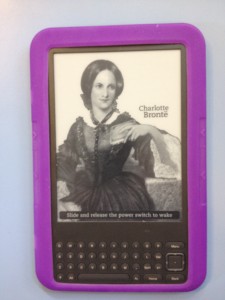LeBron James, open book
 The NBA championship, recently won by the Miami Heat, was big news in the sports world. But a secondary story was the focus on Heat star LeBron James, who focused before games by reading. Yes, reading—all kinds of books, fiction and nonfiction.
The NBA championship, recently won by the Miami Heat, was big news in the sports world. But a secondary story was the focus on Heat star LeBron James, who focused before games by reading. Yes, reading—all kinds of books, fiction and nonfiction.
And lots of sports reporters, including ESPN’s Michael Wilbon here, would like to see that become just as big a story:
Where cynics saw a ballplayer doing something for the cameras, I saw a chance, whatever LeBron’s motivation, for a role model to use his influence to make an impact, intentional or not. According to The Alliance for Excellent Education, only 3 percent of all eighth-graders read at an advanced level. Imagine how many of those eighth-graders want to do what LeBron James does. At 13, 14 years old, they can’t drive the car he endorses, might or might not be able to afford the shoes he endorses.
But they can borrow a book even if they can’t afford to buy one. And if LeBron is reading, then reading must be fairly cool. Is there a better message the world’s best basketball player could send?
Fiction can shape our lives
Writer Diane Cameron sees summer as the perfect time to learn about life by falling under the spell of stories:
Despite being in thrall to information, wisdom comes not from knowing facts but from knowing truths about human nature; it comes from seeing through facts to their underlying patterns. We are shaped by the stories that we read and hear.
Elizabeth Barrett Browning Project
This rather remarkable project, based at the University of North Dakota, is a loving tribute to the works of the poet Elizabeth Barrett Browning. Directed by Dr. Sandra Donaldson, the project fills a gap in the scholarly literature surrounding Browning’s works. In 2010, a five-volume print edition of these works was published, under the editorial direction of Dr. Donaldson. This site presents all the version of Browning‚s heavily revised poems that are difficult to represent in linear print format. These multiple interactive versions allow us to see online how Browning reworked her poems over time. Overall, this is quite an innovative and important resource. The poems made available here include “A Child Asleep, “Loved Once,” and “The House of Clouds.” Further along, visitors can explore the “Prose” area to view different iterations of works such as “The Book of Poets” and “American Poetry.
>From The Scout Report, Copyright Internet Scout Project 1994-2012. http://scout.wisc.edu/
Mother & Daughter Coauthors: Jodi Picoult and Samantha van Leer Talk to PW
 Publishers Weekly features an interview with prolific author Jodi Picoult and her daughter, Samantha van Leer. Jodi was on a book tour when her daughter called and told her she had a great idea for a story. Jodi thought the idea was brilliant and suggested the two write it together.
Publishers Weekly features an interview with prolific author Jodi Picoult and her daughter, Samantha van Leer. Jodi was on a book tour when her daughter called and told her she had a great idea for a story. Jodi thought the idea was brilliant and suggested the two write it together.
The result of the collaboration is the novel Between the Lines. Samantha reports that the project taught her a lot about how hard it is to be a writer. Samantha’s next writing project will be her college application essays. But who knows what may follow?
my mom and I both feel that Between the Lines isn’t quite over yet–we left it hanging intentionally, and we’ve talked a lot about what a sequel will look like, and what the characters would do next.
Are E-Books Bad for Your Memory?
 Lorien Crow offers some disturbing news as ebooks become more popular with both individuals and schools:
Lorien Crow offers some disturbing news as ebooks become more popular with both individuals and schools:
Schools and universities are using e-readers and tablets as valuable learning tools, but scientists are questioning their effect on memory.
A small but growing number of researchers are uncovering evidence that readers are better able to remember what they read in printed books long-term when compared to materials read via an electronic screen. The results are raising questions on their value as learning tools, especially as tablets make their way into education.
Some research suggests, for example, that students must read material more times in electronic format than in printed format to remember it. Studies also suggest that students better understand material they’ve read in print than on a screen. But other scientists point out that
new practices around e-reading need to evolve before humans are able to absorb the information held in e-books, as quickly and as fully as before. But this is no new challenge — throughout history, new technologies sparked fierce debate among critics and philosophers, including Plato, who thought writing would ruin focal memory.
Evaluating both sides of the argument for ebooks leads Crow to conclude that “Ultimately, technology is changing the way we think and learn, but it only hinders us if we let it. Being aware of the potential pitfalls is key to success, and 20 years from now, flying cars might be the next big cause for concern.”
